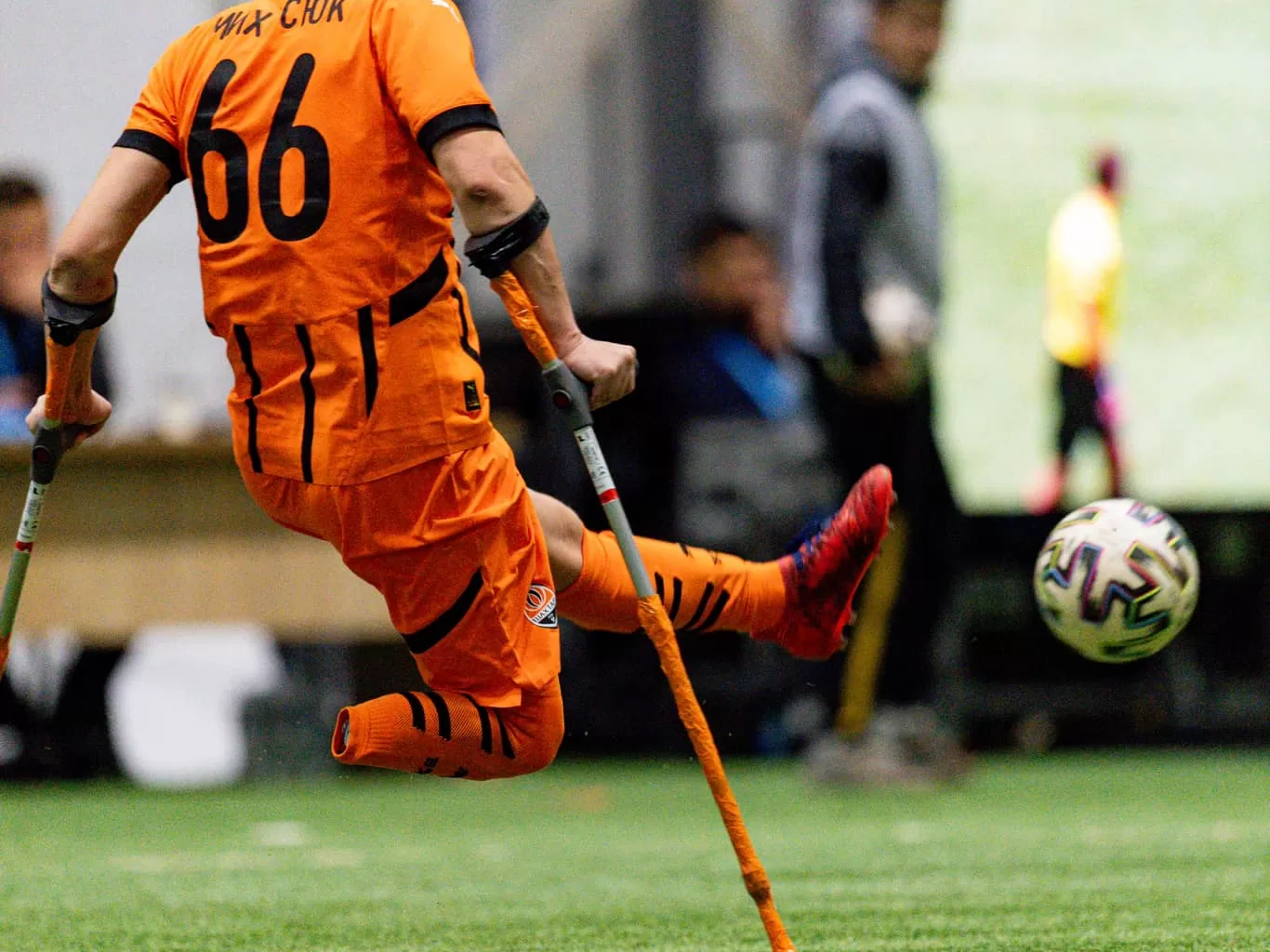"We are the only mixed-gender team with both men and women playing," says Olha Benda, a seasoned football player.
But that’s not the only thing that sets her team apart — all its members are war veterans with amputations.
"Our team was just formed recently," says Olha, who lost her leg in 2017 while fighting Russian forces in the east of Ukraine.
Now, she’s found a new battlefield: the football pitch. With the Amputee Football Club Association, she and her teammates are proving that resilience wins — both on and off the field.
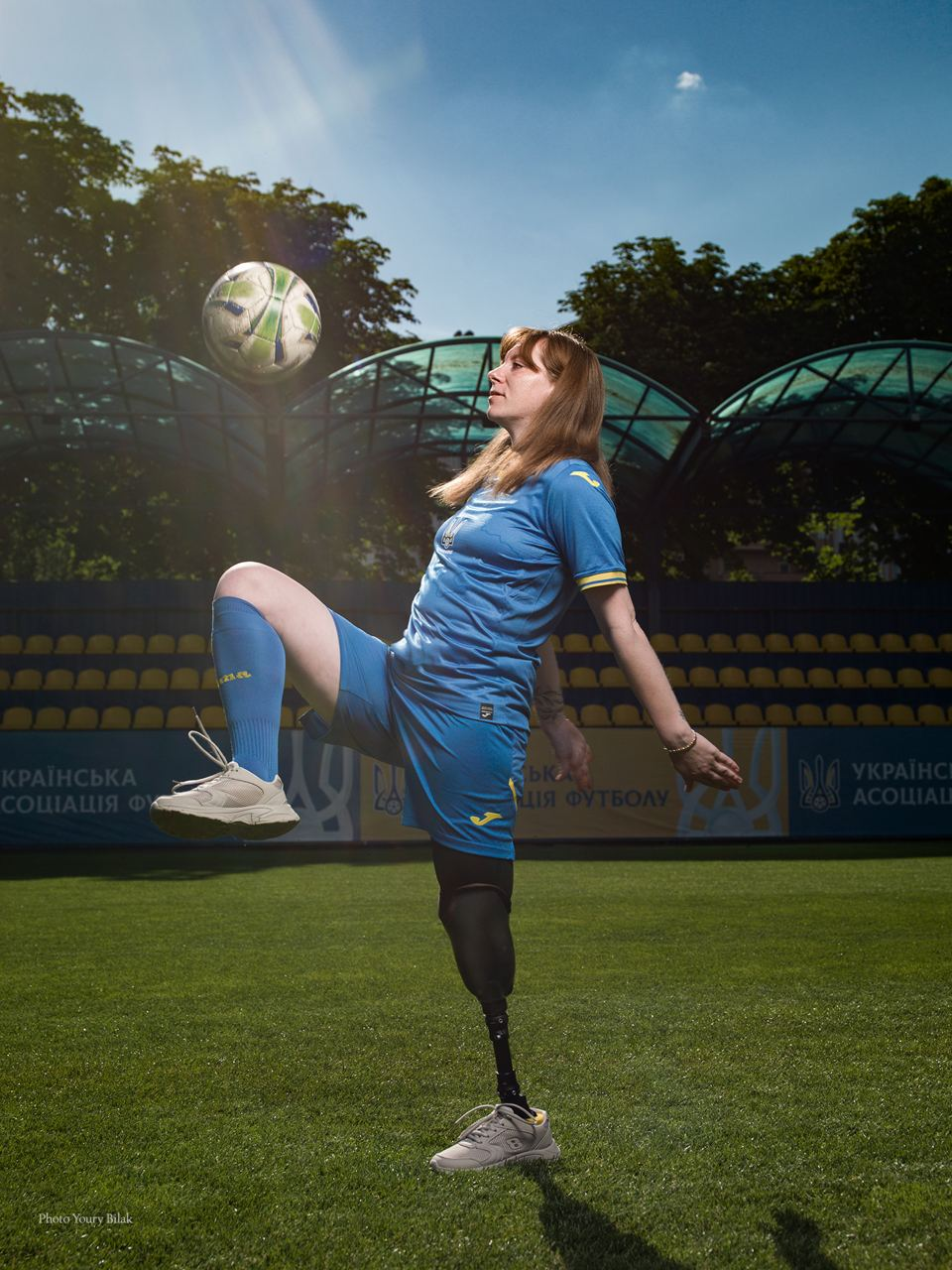
Ukraine’s hidden battlefield
As of December 2024, 370,000 Ukrainian servicemen have been wounded, President Zelenskyy reports. Those who survive Russia’s brutality face a stark choice: return to the battlefield or rebuild a life forever changed.
However, integrating into Ukrainian society proves an entirely new set of challenges. According to the country’s health ministry, at least 50,000 Ukrainians – both soldiers and civilians – have lost their limbs in the war.
The most widespread causes for the limb loss range from drone attacks and missile strikes on civilian areas to landmines – a decade-long threat for Ukraine, with a quarter of its land contaminated by explosives.
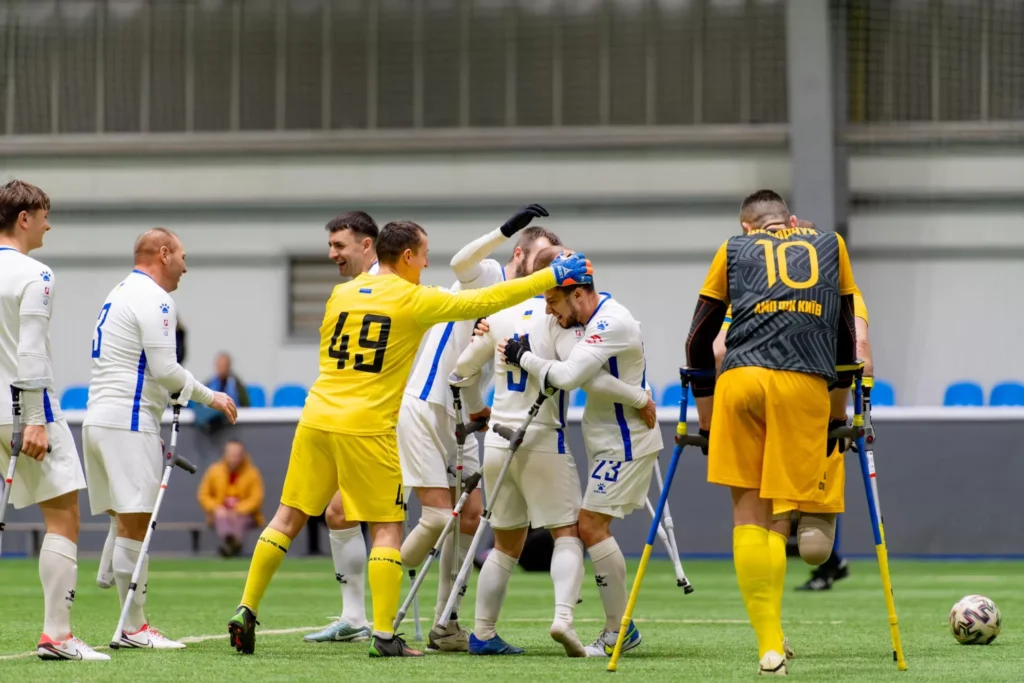
State support for amputees boils down to a pension that veterans deem inadequate, while social services fail to keep up with the growing crisis. Healthcare is equally lacking — veterans face a severe shortage of mental health services, according to a reSCORE Ukraine, co-funded by USAID and the UN.
Meanwhile, over 30% of veterans no longer in service face unemployment, according to the Ukrainian Veterans Fund (UVF). For those of them with amputations, navigating Ukraine’s shrinking labor market is an uphill battle, with some even returning to the frontlines to regain a sense of purpose.
Recognizing the struggles of these veterans, civil society steps in where the government falls short, helping amputees reintegrate into civilian life. One such outlet? Football.
The teams like no other
In February 2024, Ukrainian football giant Shakhtar Donetsk, with 15 national championships under its belt, made history by launching the first professional football team for Ukrainians with disabilities. Named Shakhtar Stalevi, the team welcomes veterans and amputees to join the club while also running a rehabilitation program to support the wounded.
“Our task is to create all the conditions so that these people can integrate and return to an active life.” said the club’s general director Serhii Palkin.
The program quickly gained traction. Just six months later, Shakhtar hosted Ukraine’s first Adaptive Football Conference, where football professionals discussed the sharp rise in amputees among soldiers and civilians, a tragic result of Russia’s relentless invasion.
Shakhtar Stalevi members called for “new approaches and solutions” to boost amputee football and support Ukrainians in need. The conference struck a chord, inspiring other organizations across Ukraine to follow their lead.
Following the conference, amputee football quickly expanded across Ukraine, with five amateur teams now offering veterans nationwide access to the sport:
- AMP FC and Shakhtar Stalevi (Kyiv);
- FC Pokrova AMP and FC Pokrova-2 (Lviv, west of Ukraine);
- MSC Dnipro (Cherkasy,central Ukraine).
“Our team [AMP FC Kyiv] was just formed recently,” said Olha Benda, who plays amputee football at AMP FC Kyiv, where she has formed a women’s team. “Rehabilitation through sports is the best approach for people with amputations.”
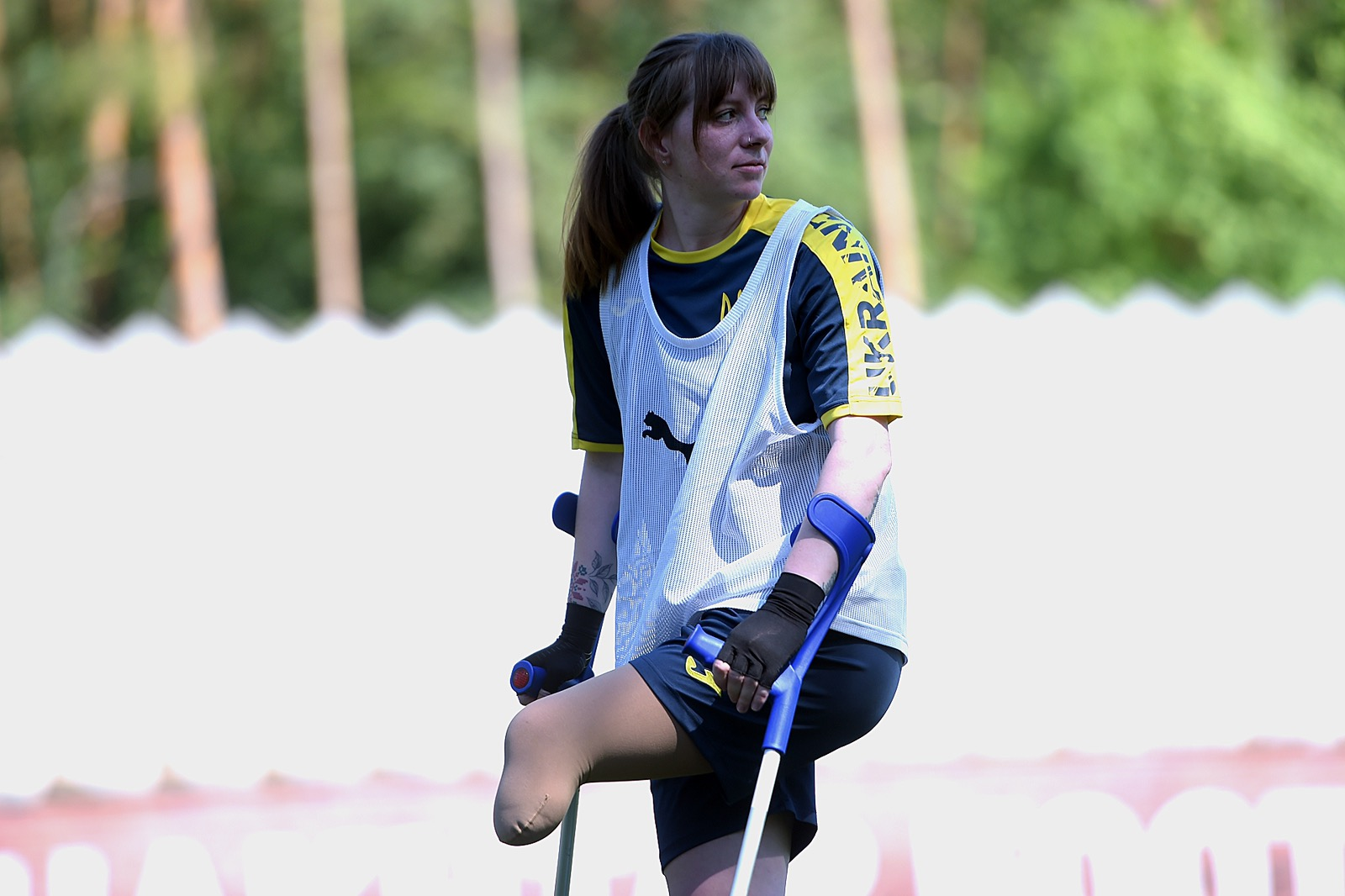
More than a game
A report by the US National Library of Medicine highlights that sports rehabilitation helps amputees “improve their physical and psychological well-being” and regain active lifestyles. With state programs struggling to keep up with the crisis, Ukraine’s football initiative stands out as a lifeline, proving that the power of sport goes beyond the game.
The Ukrainian Association of Football (UAF) has stepped up, vowing to help veterans rebuild their lives through amputee football.
The UAF made history by organizing Ukraine’s first amputee football tournament, held in Kyiv in mid-January. The event featured five newly-formed clubs, with Lviv’s FC Pokrova clinching the League of the Mighty championship by defeating FC AMP Kyiv in the final. Dmytro Kuts scored the decisive goal for Pokrova, securing their victory.
“Amputee football gives a chance for rehabilitation and reintegration,” says Dmytro Kuts, the scorer of Pokrova's winning goal.“This is very important for the military.”
Kuts, a former Ukrainian army soldier who lost his leg during the battle for Klishchiivka near Bakhmut in Donetsk Oblast, found his path to resocialization through Ukraine's beloved sport.
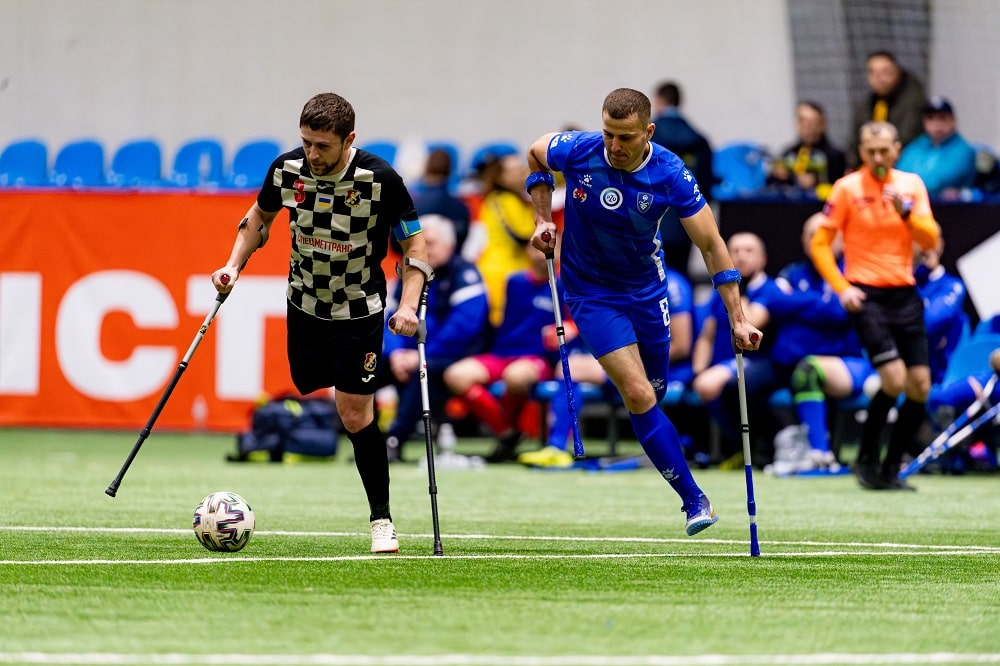
When champions create champions
The January 2025 League of the Mighty marked the first step in building Ukraine’s amputee football movement. With the UAF's mission to help amputees “return to active life, find inspiration, and overcome challenges.”
The tournament has already received positive feedback from participants, and growing interest from the broader Ukrainian society suggests that it may have already achieved its goals.
The UAF is determined to build on this momentum, pledging to invest more in opportunities for amputee veterans and inspire other organizations across Ukraine to create their own clubs and programs to support both veterans and civilians.
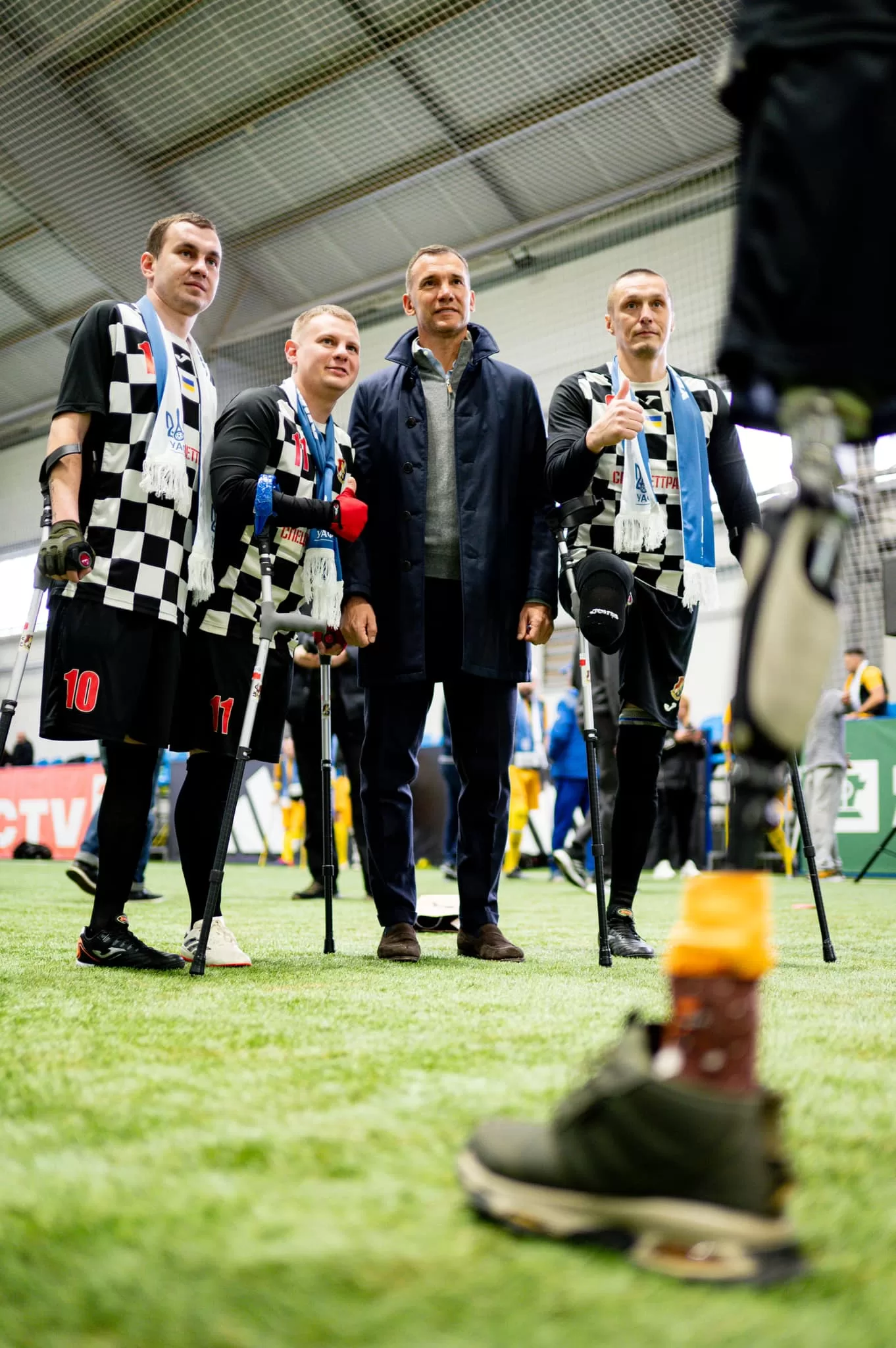
UAF President Andrii Shevchenko highlighted football's unique ability to support rehabilitation and recovery, actively promoting it to Ukraine's estimated 50,000 amputees — many of whom were injured while defending the country.
“This first UAF amputee football tournament has demonstrated that nothing is impossible when there is a will and a team of like-minded individuals,” Shevchenko said.
Victory beyond the battlefield
Riding on the success of the League of the Mighty, the UAF is now taking steps to build a nationwide amputee football league, encouraging more veterans to get involved. With a simple sign-up feature, the UAF is helping interested individuals connect with local amputee programs, ensuring everyone has a chance to participate.
To keep the momentum going, the UAF is rolling out workshops for coaches, managers, and referees to master amputee football’s rules, empowering them to fuel the sport’s growth. Plus, they’re hosting training sessions for amputee players, laying the groundwork for a thriving future.
The UAF has big dreams for Ukrainian amputee football, aiming to compete on the international stage with top European clubs.
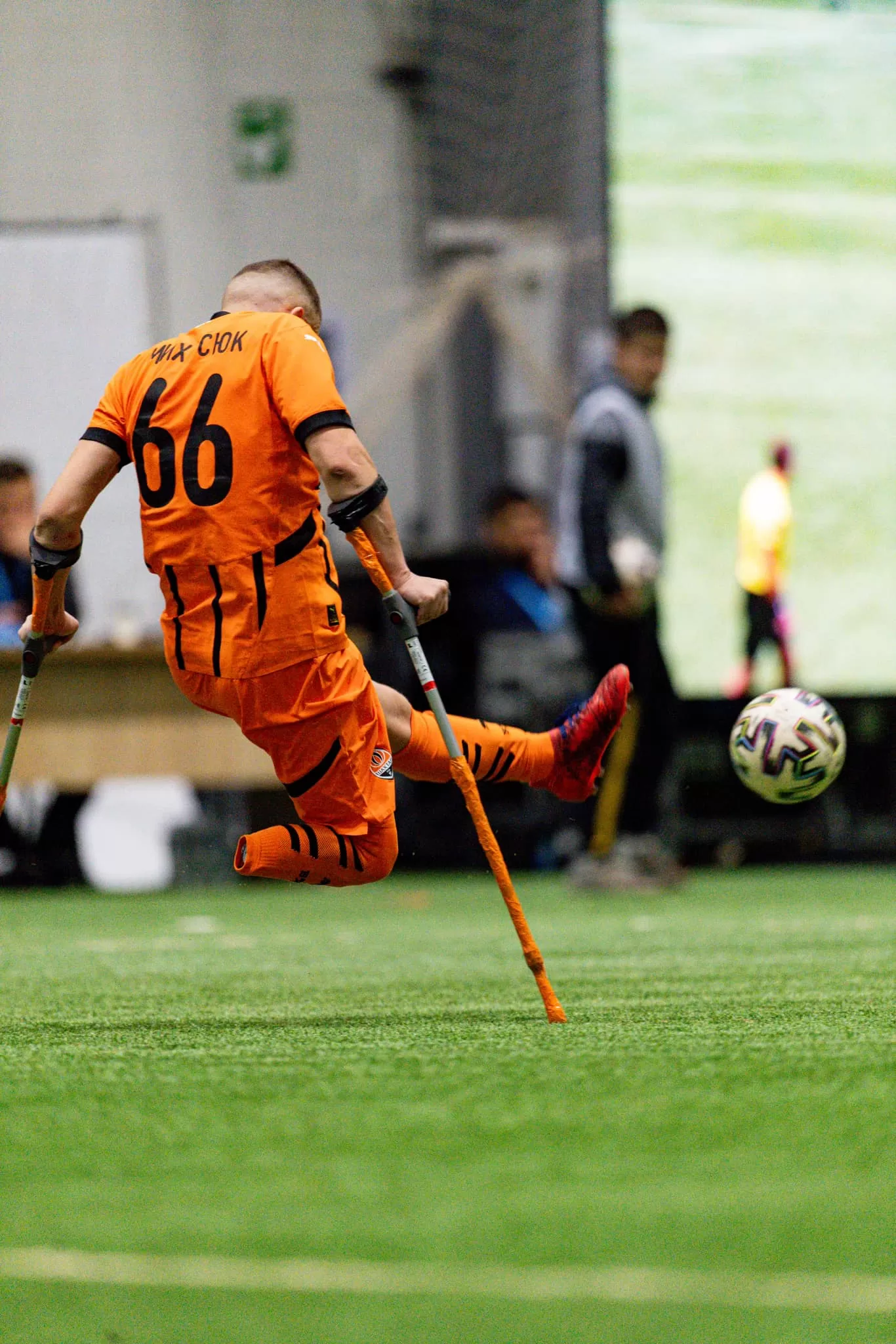
However, this aspiration is not short of challenges. As a new initiative, the sport needs crucial funding to grow — covering everything from nationwide programs and rehabilitation to the specialized gear players need to perform at their best.
Additionally, with amputee football still in its early stages and many yet to discover its potential, the UAF needs a boost in funding to break through the barrier.
But the cost is justified. Thousands of Ukrainians have risked everything to defend their homeland—some losing their lives, others losing limbs. In return, the least Ukraine can do is offer a program that helps veterans reclaim their strength, showing them they are not only needed but capable, no matter what they've sacrificed.

